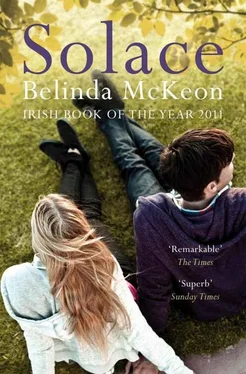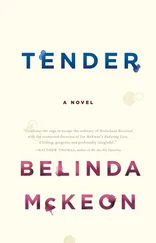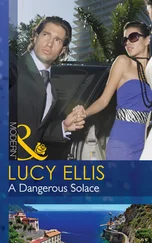Throughout this speech, Joanne kept an eye on Elizabeth Lefroy, seated close to the back of the court. Elizabeth had been watching O’Halloran with an expression of intense focus. Her chin was drawn high, her mouth was closed, her eyes were bright. As she listened, only the muscles of her face seemed to react, twitching and tightening. There was nothing, in that face, of the woman ruled by her emotions, maddened by her jealousies and paranoias, who was being described by O’Halloran. Elizabeth’s testimony that morning had been the testimony of a woman who wanted no sympathy from the court, who would dismiss such sympathy were it to come her way. Paddy Glackin was an idiot, a country barrister of the kind Joanne knew so well, appealing to the lowest sentiment, pulling on heartstrings. And that rubbish about England — where did he think he was, the local clubhouse? Was he forgetting that the judge in front of him was as much of a West Brit as he was likely to encounter in a house like Elizabeth Lefroy’s or anywhere else? It was the final proof that Elizabeth had no money. Even the pension that Rupert claimed to be giving her would get her a barrister with more style and more clout.
O’Halloran sat down. She raised her eyebrows at Imelda. She did not look to Joanne or back to Rupert. Then, things moved quickly. The judge spoke briefly before granting judgment in favour of Rupert. Elizabeth was instructed to pay his costs. At the verdict, Elizabeth’s gaze shifted to her son, who was frowning and nodding hard. Afterwards, he left with Mona and Imelda. Joanne watched as his mother talked quietly to her solicitor. When Elizabeth was alone, Joanne stood and approached her.
‘Excuse me,’ she said, hearing her voice at an unnatural pitch. She cleared her throat. ‘Mrs Lefroy?’
Elizabeth glanced up sharply; she had not expected her thoughts to be disturbed. But her expression was not unfriendly. She looked interested. She looked intelligent.
‘Yes?’ she said lightly. ‘Was there something more you needed from me?’
‘I just wanted to say I’m sorry for what happened.’
The old woman seemed startled. ‘Aren’t you with my son?’
‘I’m sorry?’
‘You are one of the solicitors who represented my son?’
‘Yes,’ Joanne nodded, but halfway through the nod she shook her head. ‘Well, I’m training with them.’
‘I see,’ Mrs Lefroy said slowly. ‘Well, my dear, you know it won’t do you any good to be seen talking to me. I think it’s best if you go on.’
‘Of course,’ Joanne said, her cheeks burning.
‘My son gets what he wants,’ Mrs Lefroy said, standing. ‘It was foolish of me to imagine that that would not always be the way.’
‘Will you be. .’ Joanne said, and she stopped. What was she going to ask the woman — whether she would be OK? What kind of answer did she expect to get? ‘I’m sorry,’ she said, and took a step back from the table.
‘I’ll get on with things,’ Elizabeth said, and Joanne was struck by how much like her daughter she sounded. ‘And as I’ve said, my dear, I think you should do the same.’
She nodded again, by way of goodbye, and then she stood and left the courtroom. Joanne packed her notes into her briefcase and followed the same way. By the time she reached the outer hall, she could see that the press, television cameras and all, had descended on Elizabeth. At the main door, she squeezed past, and stood on the steps below to watch the jostling and the shouting. What she had forced herself to push out of her mind since earlier that day was now crashing back in. It was demanding her attention. You don’t have anything to worry about, she told herself again. But she did. She knew she did.
It was while she had been getting ready to leave the office that morning that she had thought of it. She had forgotten it; she had forgotten to watch for it, forgotten to notice that it had not come. She had been too overwhelmed by too many other things. She had been searching for something in the bottom drawer of her desk. Whatever she was looking for was not in the drawer, but the box of tampons was there, and when she saw it, she understood with a shock that almost forced her from her standing. It had been too long. It had been, she thought, her mind reeling backwards over the weeks, almost a whole two months. She took it up, the half-empty box, and stuffed it into her handbag, telling herself that she would need it, that it had just been the workload and the exhaustion. That, now the Lefroy case was ending, the cramps and the bleeding would come. But at the same time as Imelda called to her to hurry she was counting backwards again, counting the times, counting the possibilities. They had always used condoms. She had not got around to going back on the pill; she had meant to go to her doctor about it, but she had been too busy, there had never been the time. And she thought that they had always been careful, but she knew the truth of it was that she could not be sure. There could have been an accident. They might have been too drunk to notice. There might have been a night when he had taken too much of a risk, staying too long in the luxury of her, not pulling out in time to put the condom on. You were not supposed to do it — she had known that since she was a teenager — but surely everybody did.
‘You’re making us late, Joanne,’ Imelda snapped, and they were gone.
Rupert was treating them to celebratory drinks in the Shelbourne, and afterwards he was taking them to dinner in the restaurant where the mews house had been. He was in exuberant humour, and so were Mona and Eoin and Imelda. Joanne watched, laughed when she had to, and drank three glasses of red wine. There was no reason not to, she told herself; there was no reason why she could not have as much wine as she pleased. Still, after the third glass, she made her excuses; she was sorry, she said, but she had someone to meet, she had already made plans. Rupert had his arm draped easily over the back of Mona’s chair as she left.
At the chemist on the corner, Joanne bought what she needed, and when she got home, she dumped her things in the sitting room. She went upstairs without a word in response to Sarah’s greeting. She had taken pregnancy tests before. They had always been accurate — that is, they had always been negative. This time, as she stood in her best suit in the upstairs bathroom, the two pink lines were as clear and as definite as the tracks of two tyres through a fresh fall of snow.
From downstairs, she heard Sarah shouting her name. She walked to the bathroom door without feeling that she had the use of her legs.
‘What?’ she shouted downstairs, and her voice did not sound like her own.
‘You’re all on the six o’clock news!’ Sarah shouted back up to her. ‘You, and Mona Manolo, and yer man she’s shagging, and his mother, and you all! Come down and look at yourself! You’ve made it, my girl! You’re the news!’
The baby was born in May. It was a girl with nobody’s eyes and nobody’s shock of fine red hair. There had been red hair way back on the Lynch side once, Joanne said, but none of them that Maura remembered had ever had that colouring.
Of course, that would be another doubt in Tom’s mind, she thought, as soon as she laid eyes on the baby. That would be another reason for him to refuse to have anything to do with his grandchild. She was a lovely little thing, really, as lovely as a newborn could be. She still looked battered and bewildered from the fright of being born, and naturally Joanne looked like a frightened child herself, propped up against the hospital pillows, the gown hanging off her, her cheeks blotched almost purple. By the bed, Mark sat trying, Maura could see, to appear calm, but his eyes were jumping out of his head. He was talking too much, talking nonsense; she could see he was bothering Joanne, crowding her with questions about the child’s scalp and the child’s feet and the plastic bracelet around the child’s wrist, and about Joanne’s pillows and whether they were hard enough, or soft enough, and about whether the child would need to be fed again soon, or whether they should wait until they heard her cry.
Читать дальше












